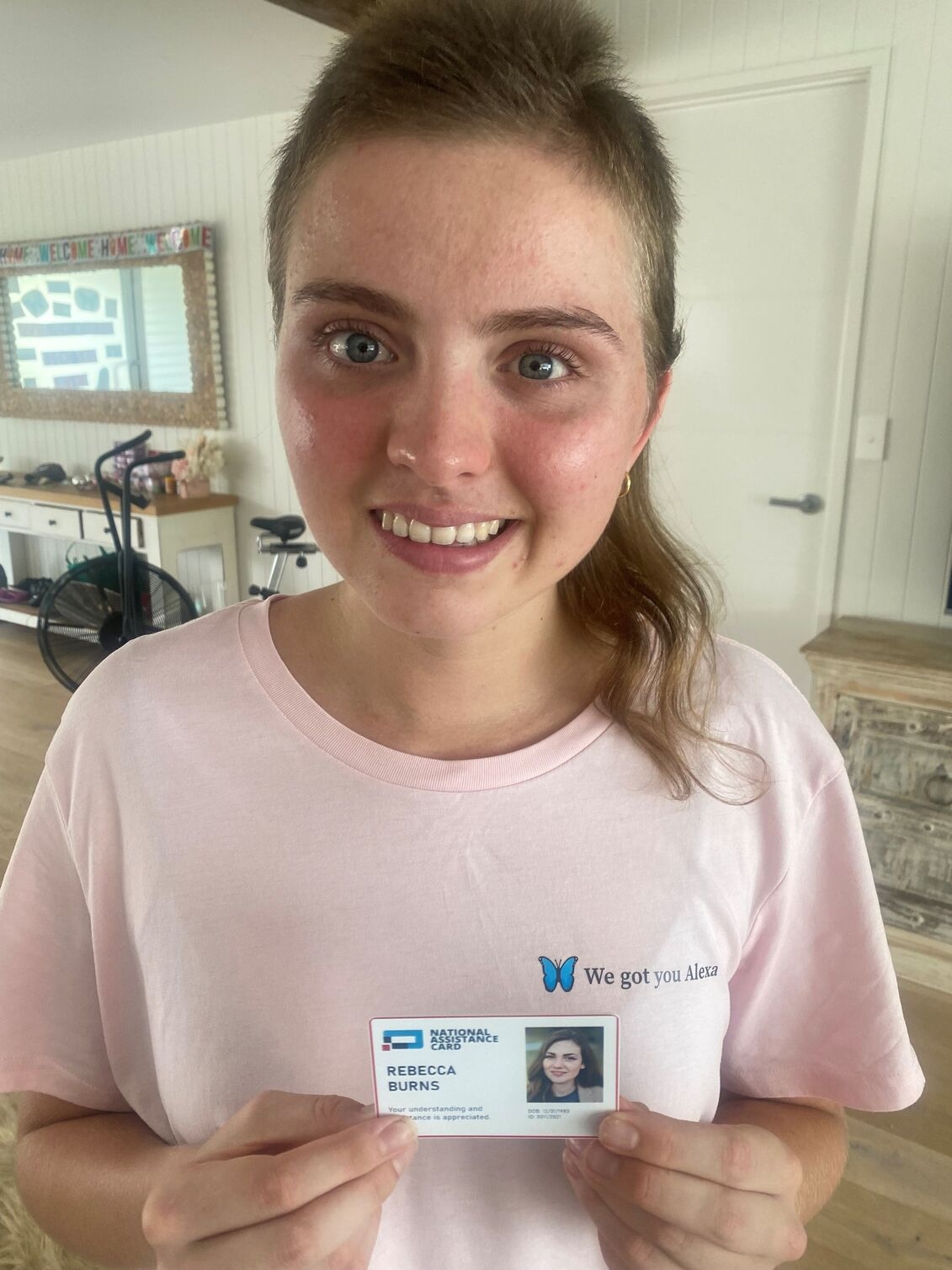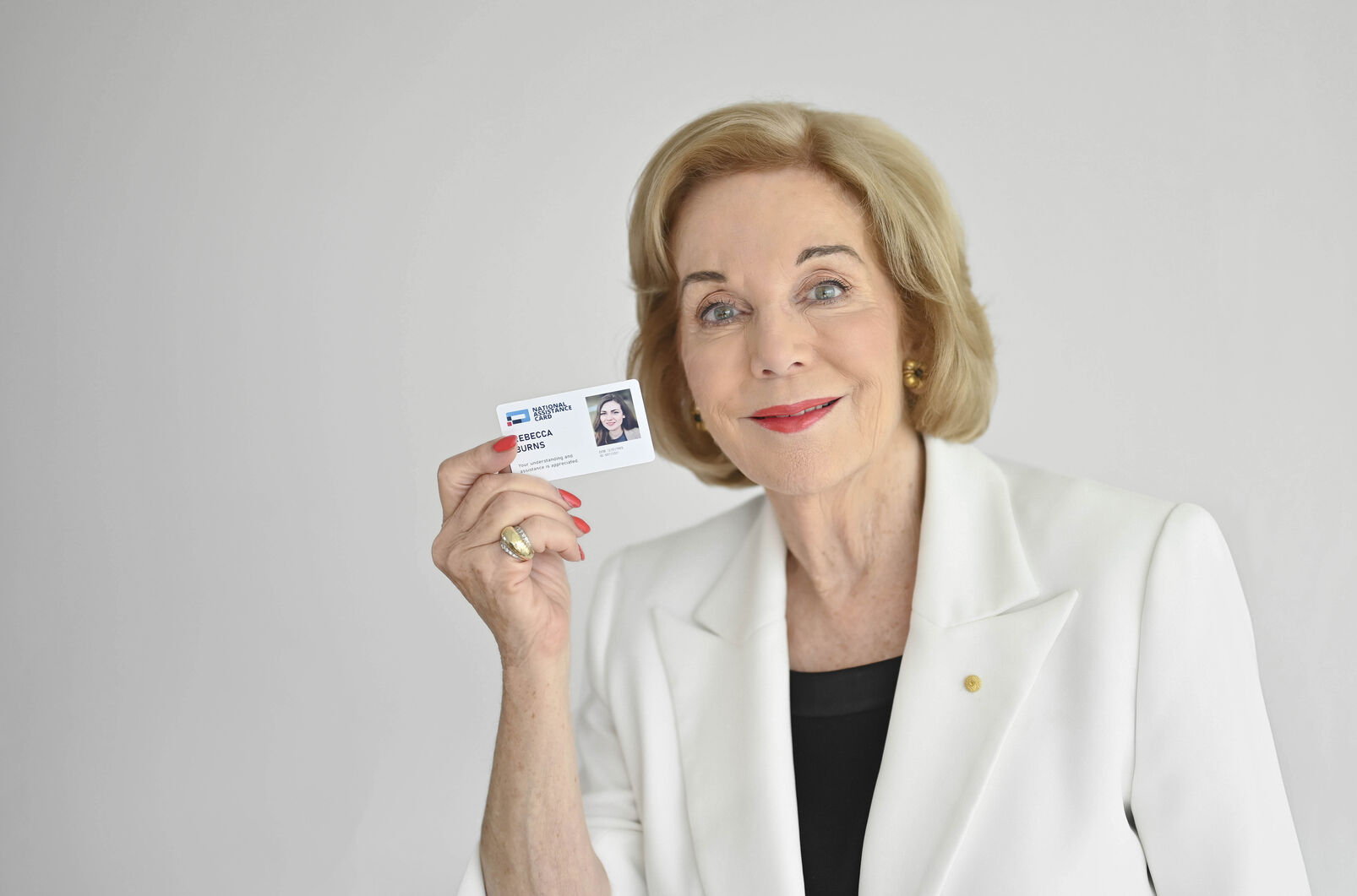The National Assistance Card Service welcomes ABC Chair Ita Buttrose and Alexa Leary (Move For Lex) as official ambassadors.
The National Assistance Card Service welcomes ABC Chair Ita Buttrose and Alexa Leary (Move For Lex) as official ambassadors.
The National Assistance Card, a Brain Injury Association of Tasmania initiative, is a personalised card to assist people with brain injury in the community.
Having cared for her father after his dementia diagnosis, Ms Buttrose said she knew all too well the impacts that brain injury could have on a person’s life.
“With many of the effects of brain injury - such as fatigue, memory difficulties or impulsivity not visible, and visible impacts such as slurred speech and balance problems misjudged, the National Assistance Card is a great initiative,” she said.
“The National Assistance Card is helping to build an inclusive Australia and to generate greater awareness about brain injury. It provides cardholders, and their families or carers, reassurance, confidence and independence.”
On July 17, 2021, a horrific cycling accident changed Noosa triathlete Alexa Leary's life forever. Now living with brain injury, Lex's dream to represent her country in the Olympics was shattered.
However, Lex and her family soon looked to create the #moveforlex movement. With more than 130,000 followers on her Instagram account, Lex posted to her followers announcing she had officially become a Card ambassador.

The video has been viewed more than 100,000 times. People with brain injury can apply for the Card online and have it delivered to their door, anywhere in the country. It’s an Australian first initiative for people living with brain injury, and it’s already helping cardholders. See Cate’s story here.
With a focus on the assistance a person may require rather than their disability, the National Assistance Card will give people with brain injury greater independence and assist them to feel more confident in everyday social situations.
The Card includes key information about the cardholder, their brain injury related difficulties and ways they can be assisted. People with brain injury that live with other disabilities or health conditions can have these included on their National Assistance Card.
People can also choose to include additional information, either written or via a personalised video, through the addition of a QR code to the Card.
Through a project funded by the Department of Social Services, the National Assistance Card is an expansion of the Tasmanian Acquired Brain Injury (ABI) Identification Card.
Brain Injury Association of Tasmania Executive Officer, Deborah Byrne said with many of the impacts of brain injury not visible, she expected that as more people with brain injury apply for and use the Card, community awareness and understanding of brain injury would
increase.
“The National Assistance Card will also provide peace of mind for families and carers,” Ms Byrne said.
The Brain Injury Association of Tasmania (BIAT) is working with Police in all States and Territories to ensure they are aware of, and informed about, the National Assistance Card.
The National Assistance Card will initially be available to all people in Australia living with brain injury. The Brain Injury Association of Tasmania hope that, in the future, the Card will be available to all Australian's living with disability and/or health conditions.
For more information, visit: www.nationalassistancecard.com.au




